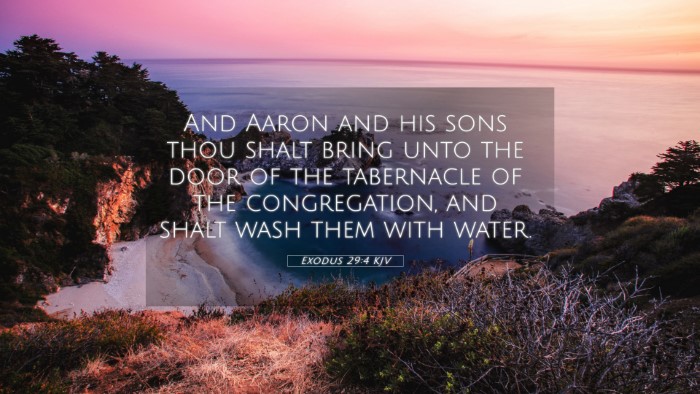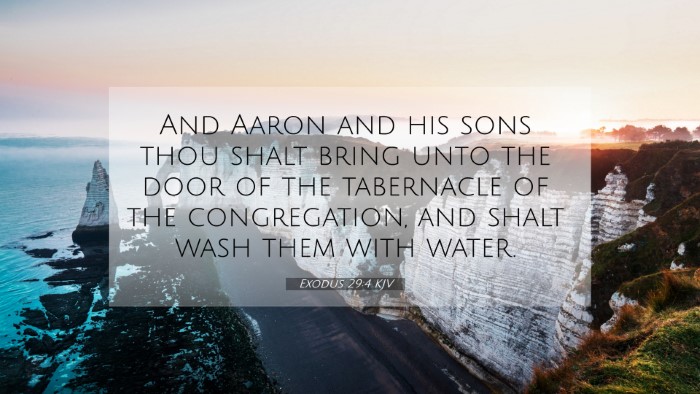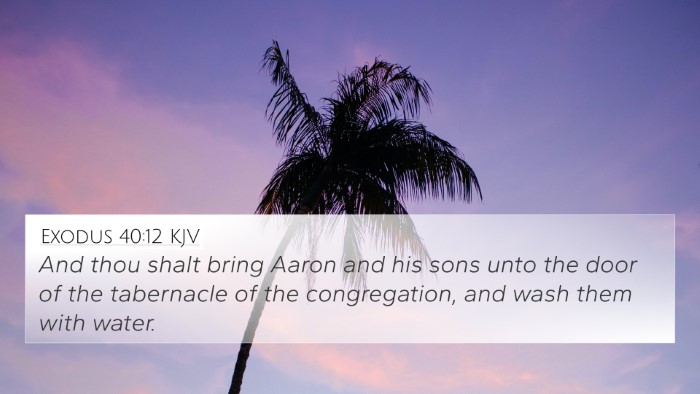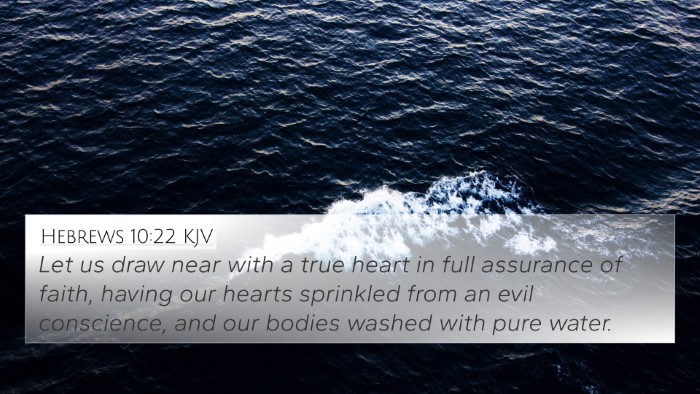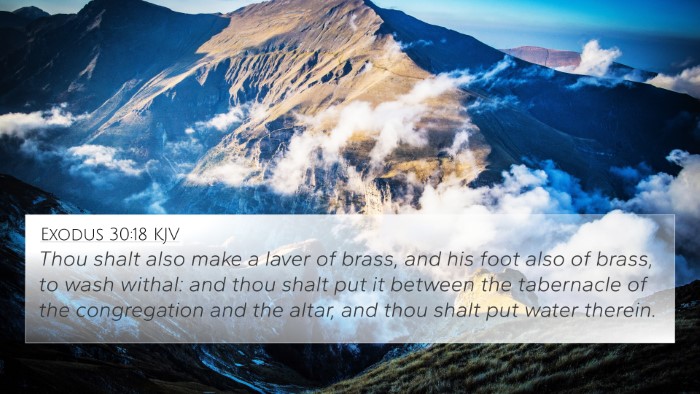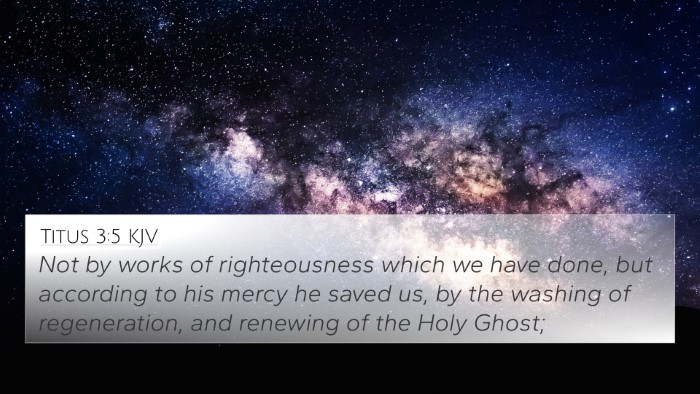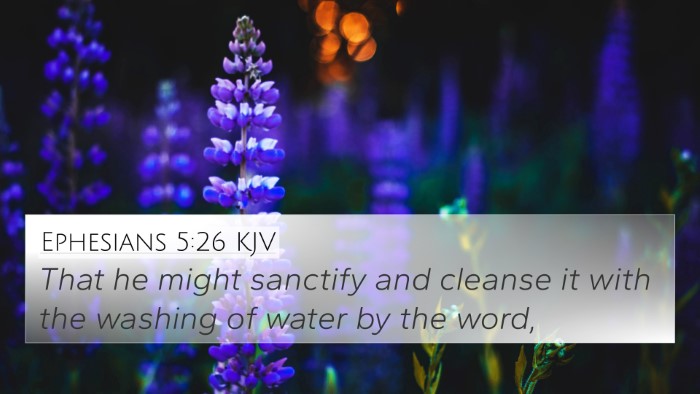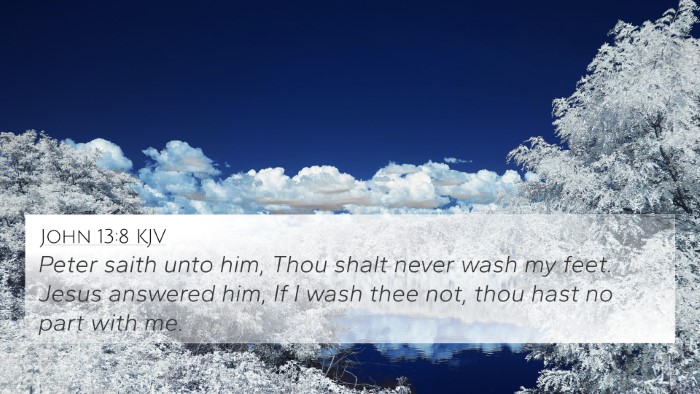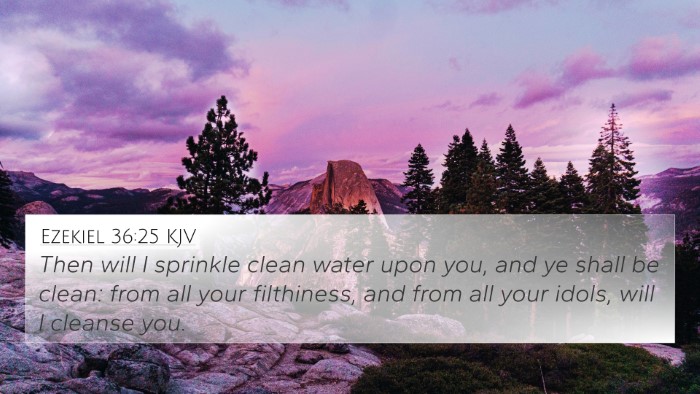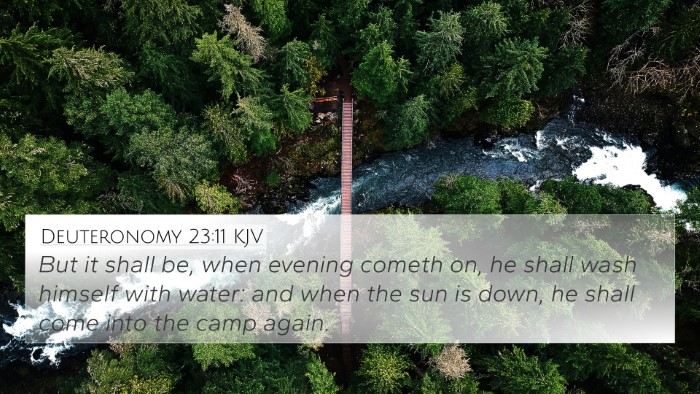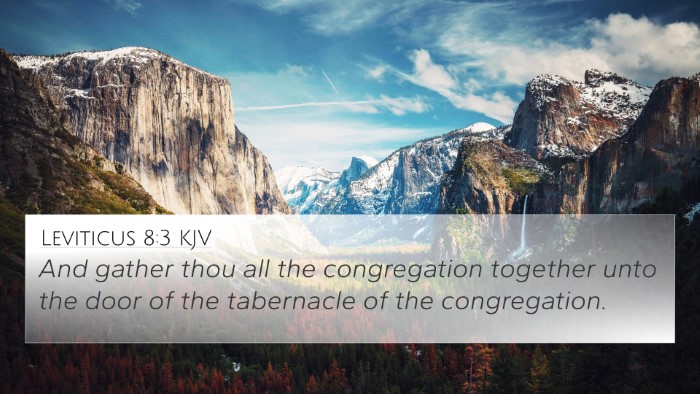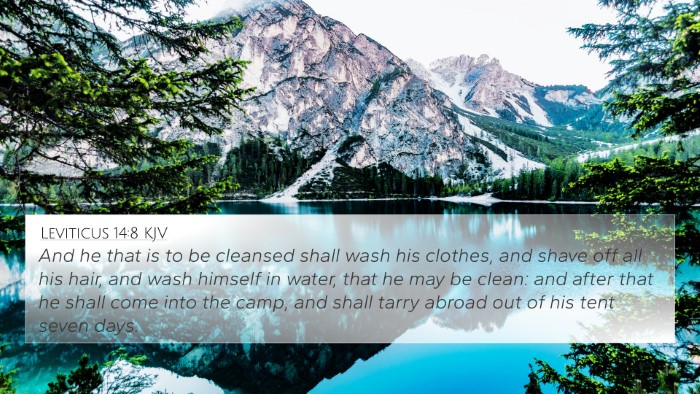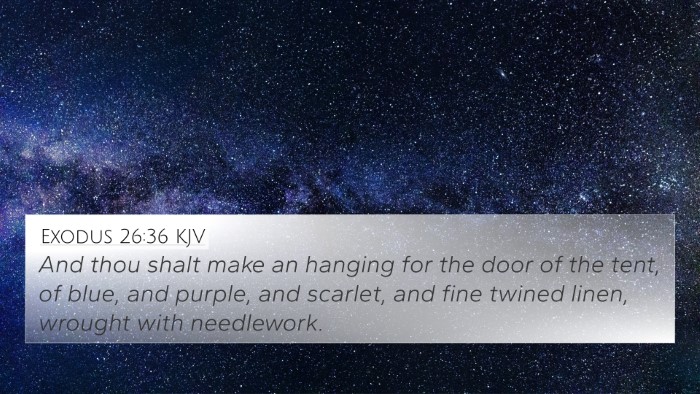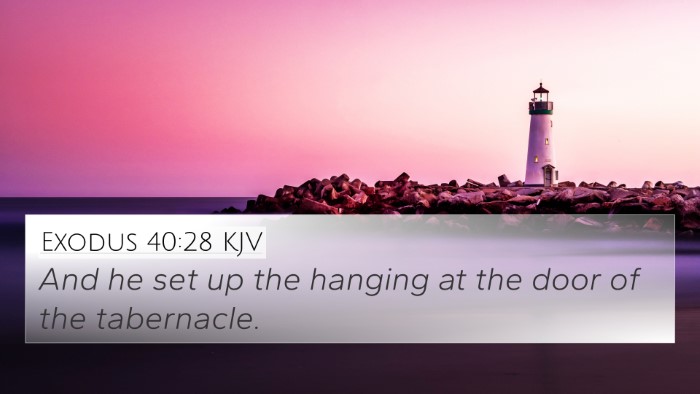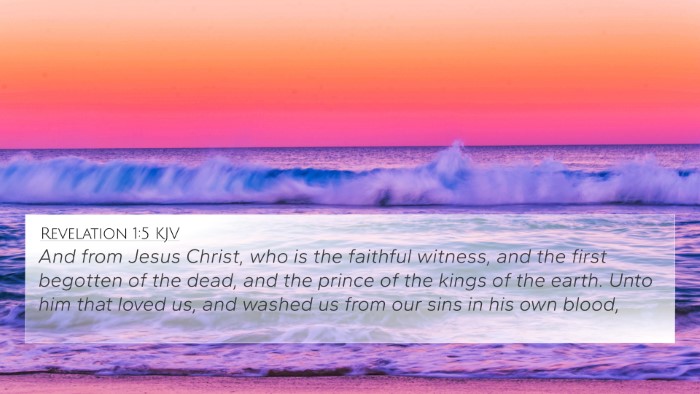Understanding Exodus 29:4
Exodus 29:4 states: "And Aaron and his sons you shall bring to the entrance of the tent of meeting and wash them with water."
This verse marks a significant transition in the biblical narrative, involving the consecration of Aaron and his sons for their priestly duties. The act of washing symbolizes purification, a recurrent theme in the Bible that speaks to the need for holiness and preparation before serving God.
Key Themes and Insights from Commentaries
- Matthew Henry's Commentary:
Henry emphasizes the importance of ritual washing in this verse, suggesting that it signifies the inward cleansing necessary for those who are to serve in the holy office. This washing reflects the broader biblical principle of purification, establishing that approaching God requires holiness.
- Albert Barnes' Notes:
Barnes notes the symbolic nature of the washing, pointing out that it is not merely a physical act but represents the inner moral purification required of priests. He connects this to the New Testament, suggesting a parallel in baptism and the call for Christ's followers to cleanse themselves from sin.
- Adam Clarke's Commentary:
Clarke highlights that this specific washing is essential for the inauguration of the priesthood. He points out that the priests' preparation is a divine directive, indicating that they must be clean before taking on their sacred roles, symbolizing the necessity of being spiritually renewed before ministering to others.
Cross-References for Exodus 29:4
This verse connects to several other scriptures that highlight the themes of purity, holiness, and the sanctification process.
- Leviticus 8:6: "And Moses brought Aaron and his sons, and washed them with water." – This verse serves as a direct parallel, elaborating on the washing ritual associated with the ordination of priests.
- 1 Peter 2:9: "But you are a chosen race, a royal priesthood, a holy nation…" – Peter references the priesthood of believers, emphasizing the call to holiness and service akin to that seen in Exodus.
- Hebrews 10:22: "Let us draw near with a true heart in full assurance of faith, with our hearts sprinkled clean from an evil conscience and our bodies washed with pure water." – This draws a connection to the purification required to approach God.
- Ephesians 5:26: "That he might sanctify her, having cleansed her by the washing of water with the word." – Reflects the spiritual cleansing that mirrors the physical washing of the priests.
- Psalms 51:7: "Purge me with hyssop, and I shall be clean; wash me, and I shall be whiter than snow." – Highlights the desire for cleansing and preparation to serve God.
- John 13:10: "Jesus said to him, 'The one who has bathed does not need to wash, except for his feet, but is completely clean...'" – Relates to the concept of regular purification as part of the life of faith.
- James 4:8: "Draw near to God, and he will draw near to you. Cleanse your hands, you sinners, and purify your hearts, you double-minded." – Reinforces the call to personal purification before approaching God.
Thematic Connections
The connections between Bible verses highlight a cohesive narrative throughout scripture about the significance of holiness and preparation for service:
- Purification as Preparation: Throughout the Bible, the act of washing signifies readiness and the need for believers to be cleansed from sin.
- Priestly Identity: The call to holiness in Exodus reflects the ultimate call to all believers, as emphasized in the New Testament.
- Old and New Testament Dialogue: Understanding the Old Testament rituals in light of New Testament teachings enhances our grasp of spiritual purity.
Tools for Bible Cross-Referencing
To delve deeper into the interconnected teachings of scripture, utilizing various tools for Bible cross-referencing can provide clarity and insight:
- Bible Concordance: A comprehensive tool to find key terms and their occurrences in the Bible.
- Bible Cross-Reference Guide: Guides that list related verses for comparative study.
- Cross-Reference Bible Study Methods: Techniques that help identify relationships between verses across different contexts.
Conclusion
Understanding Exodus 29:4 in the context of purification, holiness, and the role of the priesthood helps illuminate the broader biblical themes of sanctification. The connections with both Old and New Testament scriptures reveal a unified message about the importance of preparing oneself to serve God effectively. The practice of cross-referencing biblical texts enables believers to explore the depths of divine truth through interconnected scripture narratives.

